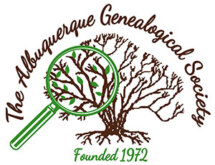A Day Of Celtic Genealogy by Five International Experts
*PLEASE NOTE that the recorded webinars for these presentations are now available for AGS members –> click here.
Come join us for presentations from some of the most recognized authorities on Irish and UK research!
April 10, 2021 from 9:00 AM to 5:00 PM MST
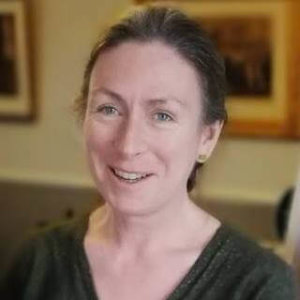
Fiona Fitzsimons
To find my soul a home: Evidence in marriage for Irish family history
9:00 to 10:00 AM MST
This talk explores how marriages were made in Ireland, from courtship, to reading the banns, negotiating the dowry, the marriage ceremony and consummation. If any step was omitted, it undermined the legal basis of the marriage. What evidence survives, and what does it tell us about love and marriage in the past? Applies to Irish, English in Ireland, Ulster-Scots.
About Fiona Fitzsimons
Fiona Fitzsimons is a co-founder of Eneclann, and the Irish Family History Centre at EPIC, the Irish diaspora museum. Since 1996 she has led the Eneclann research team. Under her guidance, their research output is a benchmark in family history in Ireland and internationally. In 2013, she was invited to give a personal presentation to the Obama family. In 2016 she was invited to accompany Joe Biden as a genealogical guide around Ireland. She writes for History Ireland Magazine, and Irish Lives Remembered. Since 2017, she has taught a two-year course in Irish Family & Social History, in Trinity College Dublin.
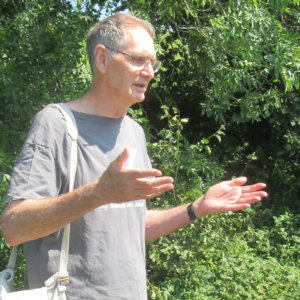
Dr. James Mallory
The Irish Dreamtime: The earliest Irish historical tradition
10:30 to 11:30 AM MST
Dr. Mallory will review some of the more salient points of his book on the Irish Dreamtime, especially concerning the relationship between the earliest Irish traditional history and archaeology. The mediaeval Irish claimed to possess one of the earliest historical records in the world extending back to nearly 3000 BC. He will also briefly discuss the creative process that was involved in constructing the traditional history and provide an example of problems trying to anchor the places and events of Irish tradition in the archaeological landscape. Finally, he will discuss the value of inheriting an Irish Dreamtime.
About Dr. James Mallory
J. P. Mallory is Professor Emeritus of Prehistoric Archaeology at the Queen’s University Belfast. He is a specialist in Eurasian Archaeology and the relationship between archaeology and linguistics. He is the co-author of The Archaeology of Ulster (1991) and author of The Origins of the Irish (2013) and In Search of the Irish Dreamtime (2016). He has excavated in Bosnia, Greece, Italy and Ireland and is a member of the Royal Irish Academy.
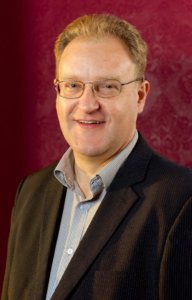
Chris Paton
Discover Your Scottish Ancestors
1:00 to 2:00 PM MST
“Wha’s like us? Damn few, an’ they’re aw’ deid!” Although Scotland is currently part of Great Britain, its historic records and traditions are very different compared to the rest of the UK, with many institutions remaining independent from England at the time of the Union in 1707. These include the Presbyterian based state church, the legal system (Scots Law), the education system, and considerably more.
In this session, Ayrshire based family historian Chris Paton outlines the records needed to explore your Scottish ancestry, noting where to find them online and offline, and exploring how they can help to trace your forebears back through time. He’ll discuss church records, civil registration records, censuses, land records, inheritances processes, and along the way flag up some of Scotland’s more interesting historic traditions to help researchers better understand their Caledonian heritage.
About Chris Paton
Originally from Northern Ireland, Chris Paton is a genealogist and writer today based in Ayrshire, Scotland, where he runs the Scotland’s Greatest Story research service at www.scotlandsgreateststory.co.uk. As well as contributing to many of the UK’s best known family history magazines, he also writes for his own Scottish GENES news blog at www.scottishgenes.blogspot.com, and regularly gives talks to family history societies across the UK and worldwide. His recent Pen and Sword publications include Tracing Scottish Ancestry Through Church and State Records, Tracing Your Scottish Family History on the Internet, Tracing Your Irish Family History on the Internet (2nd edition), and Sharing Your Family History Online.
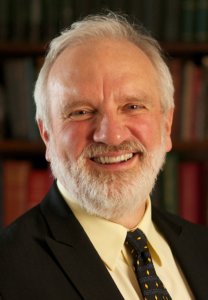
Paul Milner
Finding the Correct Place: Maps and Gazetteers for Scottish Research
2:30 to 3:30 PM MST
Learn the important history of map making and see examples of many different types of maps available, many now online and how they can be used to assist in your Scottish research, plus learn about the different gazetteers that will assist in finding the correct location.
About Paul Milner
Paul Milner, a native of northern England, professional genealogist and international lecturer. He teaches English and Scottish research tracks at SLIG, IGHR and the British Institute. Paul is a recipient of UGA Fellow Award (2018) and the FGS David S. Vogels Jr Award (2019). He is the author of six publications providing how-to guidance for English and Scottish researchers. He is the past-president of the BIGWILL, and board member of the APG, FGS and GSG. Paul focuses on British Isles resources and methodology on his blog at www.milnergenealogy.com
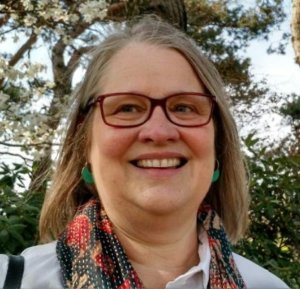
Karen Stanbary
Spit and You Shall Find: Autosomal and X-DNA Identifies a Charming Scoundrel
4:00 to 5:00 PM MST
Karen describes her methodology to identify the biological father of her own dad’s maternal grandmother who was “adopted” in 1882. The bio father turns out to be quite the charming scoundrel. Newspaper articles about various scandals pepper the talk with humor and keep the audience engaged. The case study demonstrates the following elements leading to a conclusion that meets the genealogical proof standard.
About Karen Stanbary
Karen Stanbary, CG®, holds the Certified Genealogist credential. She lectures nationally on the use of DNA test results in genealogical problem-solving, always within the framework of the Genealogical Proof Standard. She is a Trustee for the Board for Certification of Genealogists and chairs that organization’s standing DNA Committee.
